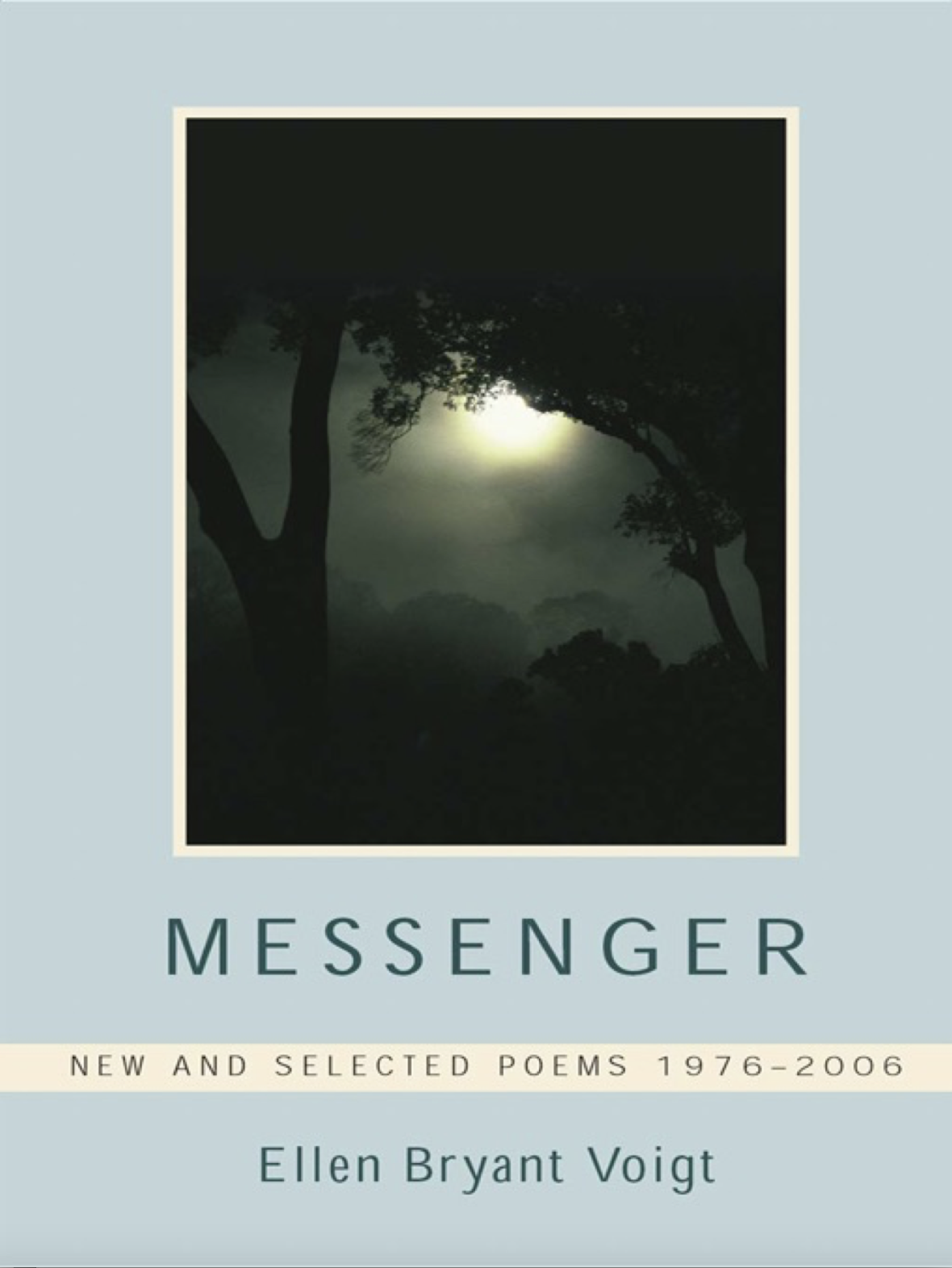In the first months of the pandemic, I found myself living in a borrowed house, beautiful and light-filled, with large granite countertops—a stately old structure ideally located near the center of a quaint, gothic city. Perfect for afternoon walks and evening drinks on the upstairs patio. Each night I would listen as the oak trees slowly filled with bird song and marvel at the languid persistence of the Spanish moss, glowing dimly above the lamp posts.
All I missed, really, besides friends and family, was my book collection, 500 miles and three states away. The house, having been renovated for weekend vacationers, had nothing in the way of reading material except for brochures of nearby tourist attractions. So, I ordered a few books from a local store.
It was in this way that I first encountered Ellen Bryant Voigt’s Messenger: New and Selected Poems 1976-2006, a book that has anchored me amid the tumultuous uncertainty of the past eighteen months. Voigt’s poems are shorn of superfluity, each line shaved down to its essential, burning core. She is a poet of control and precision; across decades and amid differing poetical movements, Voigt is steadfast in her adherence to a clear-eyed iambic elegy—an elegy defined most strikingly by her devotion to unsentimental self-interrogation and her equally unflinching assessments of public life.
This is not to say the poems are at all predictable or uniform—they’re not. Voigt’s shapes and subjects are various, and, in the later years, sometimes expand into symphonic, broadly structured sequences, but one never loses the sense that these words have come from the wellspring of a resolute American master.




